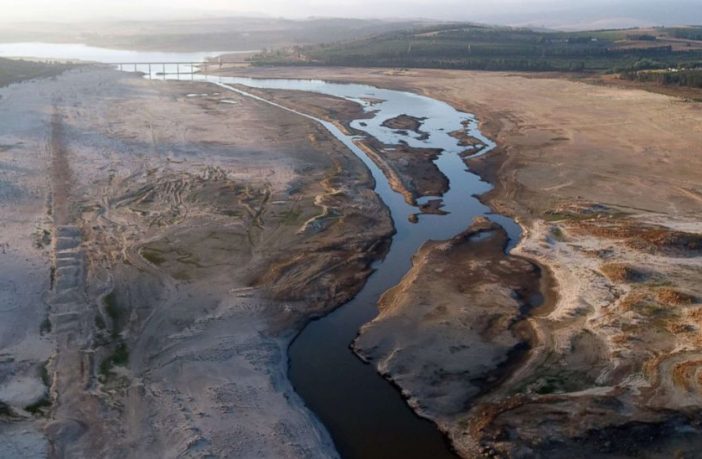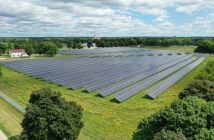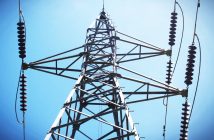Opinion
- South Africa is facing a deepening water crisis.
- Unless urgent, decisive steps are taken now, it is predicted that by 2030 the country’s demand for water will exceed the available water supply by 17%.
When Cape Town almost ran out of water in 2018, the city’s looming “day zero” made headlines and was the main topic of conversation for months. Since then, other towns have faced devastating water shortages and are now contemplating their own day zeros.
Earlier this month, the Nelson Mandela Bay Municipality reported that dam levels were at 12.27%. The Kouga Dam, one of the primary water sources for the metro, has just 4.5% of water left, of which only 1.5% is usable.
The Makana Municipality in the Eastern Cape has been rationing water for a year and four of its dams are at 5% of their capacity. In the town of Makhanda, water is only provided by the municipality between 05:00 and 20:00. In Riebeek East, residents only get water between 04:00 and 08:00 and 16:00 and 20:00 while Alicedale only gets water every second day.
Seven million people in the Eastern Cape face an uncertain future due to the region’s desperate water situation, with taps in some parts of Nelson Mandela Bay expected to run dry in July, while several dams in the province are almost empty.
Water supply deficit
The rest of the country may face the same situation if we do not urgently turn our attention to closing the gap between South Africa’s increasing demand for water and our dwindling supply of this valuable resource.
According to 2030 Water Resources Group, based on our burgeoning population, economic growth forecasts and current water use efficiency, South Africa will have a water supply deficit that may be as much as 3.8 billion cubic metres in 2030.
This is substantially more than the total capacity of one of Gauteng’s most important water sources, the Vaal Dam, which holds 2.6 billion cubic metres.
While this is worrying news for consumers, it will be an even more grave situation for the industry, with businesses often last in line for this vital resource.
According to the World Bank, the industry will need 50 to 70% more water globally, and energy production will use 85% more water by 2035. The industry, therefore, has a crucial stake in this crisis and an essential role to play in addressing water challenges.
Wastewater reuse must be part of the world’s – and especially South Africa’s – water solution.
According to the Wastewater Report by the International Water Association, used water is one of our most under-exploited resources.
This report revealed that around 80% of all wastewater is discharged into the world’s waterways, a situation that has “serious implications for ecosystem health and will have a costly impact on society”.
“Recovering the water, energy, nutrients, and other precious materials embedded in wastewater is a key opportunity to be seized,” the report stated.
According to an Institute of Security Studies report authored by Zachary Donnenfeld, among others, only around 60% of South Africa’s wastewater was treated for reuse.
This report also noted a quarter of the country’s wastewater treatment facilities were in a “critical state and need urgent attention, while another quarter is defined as high risk”.
The treatment of water and wastewater targets the modification of water quality, either by removing impurities or by adding substances that adjust water parameters, such as pH.
Various physical, mechanical, chemical and biological processes can be applied to produce potable water in the required quantity and quality. The source waters are also varied, and these can include groundwaters or water that has already been used for industrial or domestic purposes.
In some parts of the world, cleaning and reusing wastewater for agriculture is prohibited for religious or cultural reasons. To avoid these constraints, a separate distribution network for reclaimed water is usually required. This network is then used for irrigation, watering green areas and other non-potable uses.
Technology and leakage detection systems
Sensors, smart meters, energy-efficient technology and leakage detection systems enable the smarter reuse and management of wastewater for efficient and sustainable operations of the wastewater treatment facilities and distribution infrastructure.
Wastewater treatment plants traditionally consume a substantial amount of electricity, with the aeration process contributing most to energy consumption.
When the wastewater contains poorly degradable contaminants and micropollutants, treating it and removing these requires even higher levels of energy consumption. This is a challenge in South Africa, where we face decreasing water resources and power supply issues, but there is a range of innovative technology solutions available.
One of the world’s largest and most innovative water treatment projects is the Changi water reclamation plant in Singapore.
By optimising the electrical systems for wastewater treatment plants like this, potential energy savings of up to 60% can be delivered. The high-efficiency motors and medium-voltage drives supplied by ABB enable critical parts of the process to operate at the highest energy efficiency and reliability levels.
The system was based on the city’s deep tunnel sewage system that is designed to collect, treat and reclaim used water produced by the city state. It collects used water from the island’s homes and businesses through a 48km deep tunnel sewer to the centralised water reclamation plant in Changi.
The plant treats up to 176 million gallons of used water a day to international standards. The treated water is then either discharged 5km out to sea through two deep-sea pipes or is sent to the NEWater Factory for further purification into NEWater, Singapore’s own brand of highly-purified reclaimed water.
Impact of climate change
The huge influent pumping station, which receives and screens all the used water from the tunnel, is equipped with water-cooled medium-voltage drives before pumping it 50m to the surface. These drives power and control the vast pumps at exceptional levels of energy efficiency.
Projects like these, which leverage wastewater treatment and water reuse strategies, are essential for South Africa to reduce our water stress levels and avoid a catastrophic crisis in less than 10 years.
South Africa is a water-scarce country. The availability of water in the country is being negatively impacted by climate change, changing the dependence and predictability of rainfall patterns to replenish dams and rivers.
Population increase is putting a strain on the ageing and under-capacitated infrastructure. Therefore, it is essential for the public and private sector to urgently partner in the common cause to secure a future where clean and safe water is provided for all the citizens in South Africa.
Author: Shiven Sukraj
Shiven is the managing director of ABB South and Southern Africa.
Disclaimer: The articles expressed in this publication are those of the authors. They do not purport to reflect the opinions or views of Green Building Africa, our staff or our advertisers. The designations employed in this publication and the presentation of material therein do not imply the expression of any opinion whatsoever on the part Green Building Africa concerning the legal status of any country, area or territory or of its authorities.











